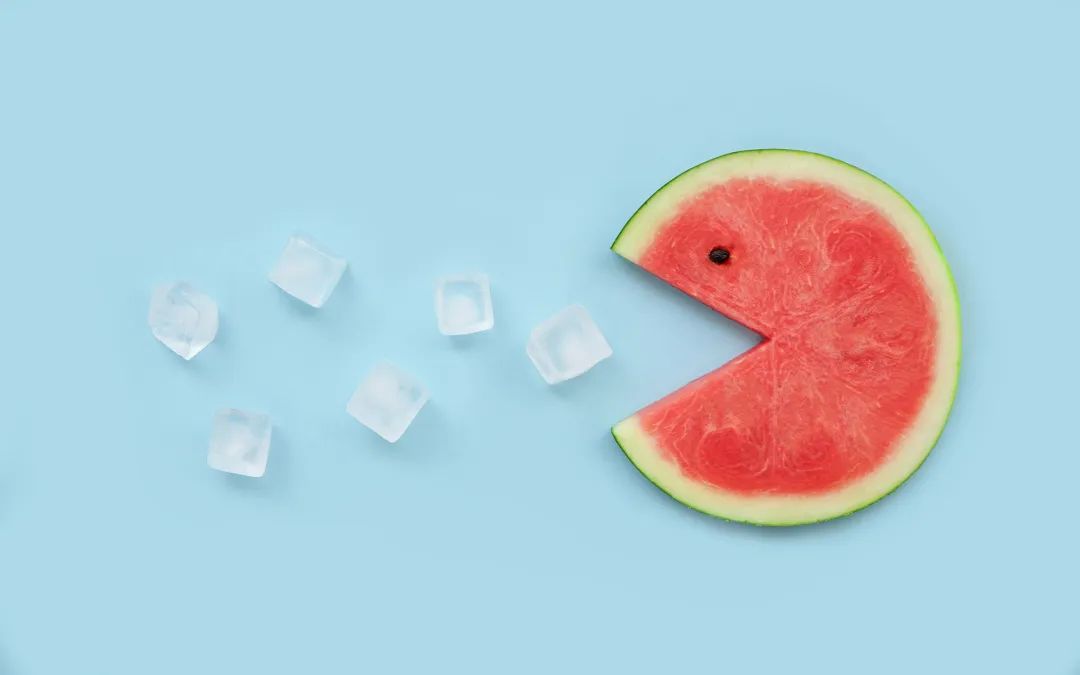High vigilance! Diarrhea is high in summer!

Content of this article:
Diarrhea classification
What kind of diarrhea should I go to the hospital?
How to prevent it
Recently, a case of infectious diarrhea occurred in Wuhan, mainly diarrhea and vomiting, which was diagnosed as cholera by the provincial CDC. As soon as this news came out, the number of patients who saw diarrhea in the outpatient clinic suddenly increased.
Summer is coming, street beer barbecue, cold drinks and ice cream, which are refreshing for a while and leaking thousands of miles after dinner. What is the summer diarrhea? Let’s give you a popular science.
What is diarrhea?
It’s not called diarrhea if the stool is more than usual once or twice. The shaped stool discharged two or three times a day can’t be called diarrhea, so what is diarrhea?
Diarrhea refers to defecation three times a day or more, or obviously exceeding the usual frequency, thin feces or watery stools, often accompanied by symptoms such as urgency of defecation and abdominal discomfort or incontinence, and often the daily weight of stool exceeds 200g as an objective indicator of diarrhea.
Generally speaking, it means "diarrhea" (such as watery stools, egg drop soup stools, mucus purulent bloody stools).
What are the causes of diarrhea?

There are many causes of diarrhea, including intestinal infection caused by bacteria, viruses, parasites and fungi; Food poisoning, heavy metal poisoning, pesticide poisoning; Take some drugs, such as digitalis, metformin, etc. Some diseases can also cause diarrhea, such as inflammatory bowel disease, irritable bowel syndrome, hyperthyroidism, etc.
Next, we will focus on acute infectious diarrhea, because it is the main cause of summer diarrhea, which is what we often call "acute gastroenteritis".
Pathogens causing infectious diarrhea include bacteria, viruses, parasites and fungi.
1. Bacterial infection: more common in summer.
Cholera: It belongs to Class A infectious disease. Both patients and carriers are sources of infection, and the route of transmission is fecal transmission. The excrement and vomit of cholera patients contain a large number of Vibrio cholerae, and the water and food polluted by Vibrio cholerae cause the spread of the disease.
Salmonella is the most common bacterial pathogen of infectious diarrhea. Shigella (bacillary dysentery), Escherichia coli, Vibrio parahaemolyticus, Campylobacter, Aeromonas and so on.
2, virus infection: more common in autumn and winter.
Norovirus and group B rotavirus are the most common, and others are adenovirus and astrovirus.
3. Parasitic infection: raw aquatic products are susceptible to infection.
Giardia lamblia: one of the main pathogens of travelers’ diarrhea.
Amoeba, Cryptosporidium, Cyclospora, Schistosoma japonicum, etc.
Why is diarrhea high in summer?

The main reasons are as follows:
(1) The hot and humid weather in summer is conducive to the growth and reproduction of intestinal pathogens;
(2) In summer, mosquitoes breed, flies and cockroaches are active, and it is easy to carry pathogenic bacteria to spread;
(3) The weather in summer is hot, the shelf life of food is short, it is easy to deteriorate, and leftovers or cooked food are easily contaminated by bacteria during storage;
(4) In summer, I like to eat cold fruits and vegetables, cold drinks, cold dishes, cold beer, cold drinks, seafood and barbecue. If these foods are made carelessly, they will easily cause pollution and increase the chances of infection after eating. In addition, eating too much cold food, eating too fast or catching cold in the abdomen can easily cause stress reaction in the gastrointestinal tract, leading to diarrhea.
(5) When the weather is hot in summer, diarrhea will also occur when the air conditioner is set at a lower temperature and the temperature difference between indoor and outdoor is large.
What are the clinical manifestations of diarrhea in summer?
The clinical manifestations of diarrhea in summer are varied and the severity of illness varies. Diarrhea is the main symptom, and other gastrointestinal symptoms include abdominal pain, bloating, nausea, vomiting and loss of appetite. From mild to severe, there may be severe dehydration, electrolyte disorder, cardiovascular and cerebrovascular complications and even death.
Cholera is mainly manifested as followsPainlessRice swill-like stool, severe diarrhea a dozen times a day.
Bacillary dysentery is mostly mucous pus and bloody stool, which may be accompanied by nausea, abdominal pain and fever.
Viral diarrhea is mostly mucus stool at first, and then watery stool. Generally, there is no purulent blood, which is frequent and large, and may be accompanied by abdominal pain, low fever and other manifestations.
There is diarrhea, how to judge whether it is light or heavy?
The assessment of dehydration is particularly important for the assessment of illness:
No dehydration: normal consciousness, no dry mouth, sunken eyes and good skin elasticity.
Mild dehydration: rapid pulse, irritability, dry mouth, sunken eye socket and poor skin elasticity.
Severe dehydration: blood pressure drop or shock, drowsiness or burnout, sunken eye socket, skin wrinkle test not recovered for 2s, oliguria or anuria.
Summer diarrhea, when do I need to go to the hospital?
Elderly and frail people, pregnant women, patients with hyperthyroidism, anemia, diabetes, chronic obstructive pulmonary disease, hypertension, coronary heart disease and cardiac insufficiency need to see a doctor as soon as possible if they have any symptoms such as dizziness, palpitation, sweating, blackness in the eyes, fainting, chest tightness, chest pain and shortness of breath after diarrhea.
If there is no basic disease, such as diarrhea for 2 consecutive days, severe dehydration symptoms, severe abdominal pain, bloody stool, fever exceeding 39℃, etc., you should also seek medical attention in time.
Summer diarrhea, what do you need to check when you go to the hospital?
Stool examination: Routine stool, stool culture, etc. When you come to the hospital, you need to take fresh stool samples, and send them for inspection within 2 hours after defecation, and take stool samples with abnormal parts.
Blood test: blood routine, CRP, electrolyte and other laboratory tests.
How to treat diarrhea in summer?
1. Diet therapy
There is generally no need to fast! Drink more sports drinks with electrolytes such as potassium and sodium and a certain sugar content. You can eat less greasy and digestible starch food, eat less and eat more meals (6 meals a day is recommended), including soda biscuits, porridge, noodles, etc., and pay attention to salt supplementation. Some patients may have transient lactase deficiency due to diarrhea, so it is best to avoid drinking milk, yogurt and other dairy products. Patients with mild dehydration can drink oral rehydration salts. After the feces are formed, the diet can gradually return to normal.
2. Drug therapy
(1) Fluid replacement therapy: Intravenous fluid replacement should be used in the following cases.
Frequent vomiting, unable to eat or drink;
High fever and disturbance of consciousness;
Severe dehydration, water and electrolyte disorder, acid-base imbalance.
(2) antidiarrheal treatment
Intestinal mucosal protective agents and adsorbents: montmorillonite powder, pectin and activated carbon, etc., have the functions of adsorbing intestinal toxins and protecting intestinal mucosa. Montmorillonite powder is widely covered on the surface of intestinal mucosa after oral administration, forming a protective film, fixing and adsorbing harmful bacteria and their toxins, making it difficult for pathogens to invade the intestinal wall, protecting and promoting the regeneration and repair of intestinal mucosa.
Probiotics: such as Bifico, whole intestine, lactic acid bacteria, etc. There are many normal bacteria in the human body, such as Bifidobacterium, the number of which is ten times of the total number of cells in the human body, mainly distributed in the intestine. If the number of normal bacteria decreases or the proportion is out of balance, diarrhea will occur, which will further aggravate the imbalance of flora. Microecological preparation is a normal bacterium mainly composed of Bifidobacterium, which can promote the recovery of normal flora and treat diarrhea after oral administration.
(3) antibiotics
Many patients ask doctors to prescribe anti-inflammatory drugs as soon as they have diarrhea, but many times this is wrong. Acute watery diarrhea, after excluding cholera, is mostly viral or enterotoxigenic bacterial infection, so antibacterial drugs should not be used routinely. Patients with mild and moderate diarrhea generally do not need antibacterial drugs. Consider using anti-infective drugs in the following situations:
Acute diarrhea with fever and mucus, pus and bloody stool;
Infection occurs in the elderly, immunocompromised people, septicemia or patients with prostheses;
Persistent Shigella, Salmonella, Campylobacter infection or protozoan infection;
Moderate and severe travelers with diarrhea.
How to prevent summer diarrhea?

As the saying goes, "illness comes from the mouth", pay attention to food hygiene!
1. Most diarrhea patients have a history of unclean diet, such as eating cold salad, leftovers, unlicensed roadside catering, etc. These foods are easily contaminated by bacteria, causing acute inflammation of gastrointestinal tract.
2, raw and cooked separately, frozen food should be heated thoroughly: food storage, tableware, knives, chopping boards, raw and cooked should be separated to avoid cross-contamination, food storage time in the refrigerator should not be too long, and it should be reheated before eating.
3, wash your hands frequently and be less greedy: wash your hands before and after meals, wash vegetables and fruits, and eat cold drinks, iced drinks and cold beer in moderation.
4, eat less greasy spicy food: too greasy food will increase the burden on the stomach and easily cause diarrhea. In hot summer, many people like to drink cold beer and eat barbecue. The high fat content of kebabs, coupled with the stimulation of cold beer, can cause diarrhea for some people.
5, proper exercise: diarrhea is also closely related to the patient’s own physical condition. Some people’s weak gastrointestinal function, lack of exercise, low resistance, coupled with hot and cold diet, can also lead to diarrhea.
6, pay attention to hydration: those who sweat more, drink some soup and light salt water appropriately to supplement the lack of water, vitamins and electrolytes in the body.
Final reminder:
Severe diarrhea must be treated promptly!
Severe diarrhea must be treated promptly!
Severe diarrhea must be treated promptly!
Say the important things three times!
Author: Cheng Jieyao, Department of Gastroenterology
Photo: Copyright of Beijing Millennium Monument Hospital